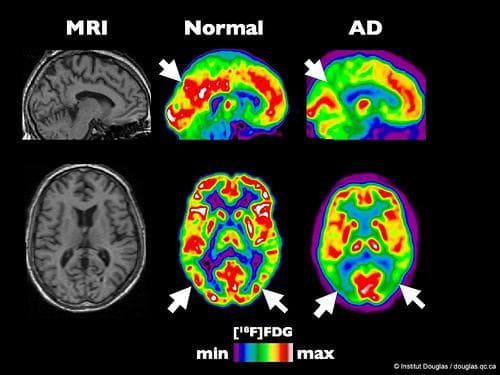Advertisement
Why To Exercise Today: Fight Your Genetic Risk Of Alzheimer's (Maybe)

I know, we've already linked to this study on exercise and Alzheimer's, but I just wanted to come back to it because the findings struck me as so dramatic. As Bloomberg reports:
Carriers of the Alzheimer’s gene APOE-4 who regularly exercised over a decade were five to 10 times less likely to have brain plaques linked to the disease than those with the gene who weren’t physically active.
It was only one study, and only followed a couple of hundred people, and a half dozen other caveats apply, but still, five to 10 times less likely to have brain plaques? If borne out, that is not minor.
When I see "APOE-4," the well-established Alzheimer's-risk gene that nearly a fifth of us carry, I think "Dr. Robert Green," the Brigham & Women's Hospital geneticist who has surely done more research than anyone on how people react when they find out they carry it. I wondered whether this study would affect what APOE-4 carriers are told when they find out they are at higher risk for Alzheimer's — would they all be sent right to the gym?
In a word, no, but here's Dr. Green's bottom line: "As we get older, there are an awful lot of things that influence brain health. The way I think of it is that if you’ve got a disease that’s slowly brewing in your brain and you keep yourself as healthy as possible, and you keep the vascular load on top of that disease — the stuff gumming up the arteries in your brain — if you can keep that to a minimum, then with whatever genetic load you have, and whatever underlying developing disease you have, you do better."
This is the second time in a week I've heard that what's good for your heart is good for your brain — it's starting to sink in. (The first concerned a study about cognitive decline in our forties.)
As for this specific study, Dr. Green cautioned that we must always be aware that just because a study finds a link between two phenomena doesn't mean that one causes the other.
"This has been a theme of a number of observational studies for quite a few years," he said, "that eating well, possibly lowering blood pressure and cholesterol, exercising — all, at least in some studies, can be associated with people who seem to get Alzheimer’s Disease later. As you and I know, the problem with these studies is that association does not mean causation. And we know from history and from estrogen studies and everything else that there’s an enormous 'healthy bias' in people who tend to take vitamins and exercise and have a lot of reasons why they may actually get less ill."
He also worries, he says, that such studies might wrongly make people "blame the victim" — contend that people who get Alzheimer's Disease didn't exercise enough — even though Alzheimer's is clearly a highly heritable disease.
I pledge not to do that. And I also readily acknowledge that the genetics of such diseases is highly complex and that early studies are nothing until their findings are replicated. Still, the next time I'm on the elliptical, I'm going to happily imagine the gummy plaques in my brain beautifully dissolving...
This program aired on January 13, 2012. The audio for this program is not available.
